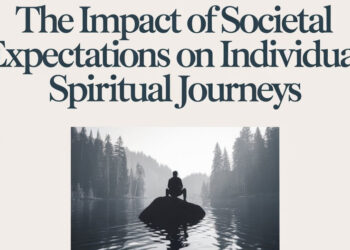No products in the cart.
Exploring Evil-Doing and the Moral Challenges It Presents Across Religions
This post contains paid and/or affiliate links. I make a small commission at no extra cost to you. Please see our Privacy Policy.
Examining the problem of evil is crucial in comprehending the intricacies of moral challenges individuals across different religions face. This philosophical question delves into whether evil’s existence contradicts a perfect God’s presence. The subject matter is not limited to a specific faith or belief system.
The argument from evil can take the form of both deductive and evidential arguments, aiming to demonstrate that evil in the world raises doubts about the existence of an all-powerful, all-knowing, and morally perfect God. The implications of this debate are profound and lead us to confront complex ethical dilemmas.
Join us as we dive into the evidential problem of evil, examine the concept of orthodox theism, explore the different types of evil and their challenges, and delve into various responses to the problem of evil. Our exploration provides valuable insights into the nature of evil doing and its impactful relevance to our understanding of morality within religious contexts.
Let us embark on this thought-provoking journey, unraveling the moral complexities and exploring the role of religion in navigating the challenges posed by evil-doing.
The Evidential Problem of Evil
The evidential problem of evil examines whether the existence of evil provides evidence against the existence of God. Evidential arguments from evil aim to demonstrate that, considering the lack of supporting evidence, it becomes improbable that a perfect God created and governs a world with evil. This argument is distinct from logical arguments about evil, which seek to prove that the existence of evil renders the existence of God logically impossible.
Orthodox Theism and the Problem of Evil
Orthodox theism, the prevalent concept of God in the Western world, asserts the existence of a single, perfect God who possesses three key attributes: all-powerfulness, all-knowingness, and moral goodness. This notion of God serves as the foundation for exploring the problem of evil.
Given the belief in an all-powerful and perfectly moral God, the presence of evil in a world created and governed by such a being raises a profound question: why does evil exist?
Throughout the centuries, thinkers and scholars have responded to this existential dilemma. One such response is skeptical theism, which posits that divine ways are beyond human comprehension. According to this perspective, despite our limited understanding, God has a greater purpose or plan that justifies the existence of evil.
Another notable avenue of exploration is the formulation of theodicies. Theodicies are attempts to explain why God, despite being all-powerful and morally sound, allows evil to persist in the world. These explanations range from highlighting the role of free will and the necessity of moral development to the notion that evil is a necessary consequence of living in a dynamic and imperfect universe.
- Skeptical theism proposes that God’s ways are beyond human understanding
- Theodicies offer explanations for why God permits evil
Both skeptical theism and theodicies entail complex philosophical and theological arguments that seek to reconcile the existence of evil with the concept of an all-powerful and morally good God.
By exploring these responses, we gain insight into the nuances and challenges presented by the problem of evil within the framework of orthodox theism.
Types of Evil and the Problem They Pose
To fully grasp the complexities of the problem of evil, it is essential to examine and categorize the various types of evil that exist. Understanding these different manifestations of evil sheds light on the moral challenges they present and raises thought-provoking questions about the existence of a perfect God amidst such suffering.
Harm Inflicted on Sentient Beings
One type of evil involves the intentional infliction of harm upon sentient beings. This can include physical, emotional, or psychological harm that causes suffering and distress. Such evil actions raise ethical concerns and provoke reflection on the nature of human cruelty and the role of divine intervention in preventing it.
Unjust Treatment
Another form of evil arises from unjust treatment, where individuals are subjected to discrimination, oppression, or unfairness. Inequitable social systems, prejudice, and systemic biases contribute to the perpetuation of this type of evil, prompting discussions on social justice, human rights, and the responsibility of a benevolent God in the face of injustice.
Loss of Opportunity and Obstacles
Evil can also manifest as denying opportunities and imposition of obstacles that hinder individuals from reaching their full potential. Whether it be due to economic disparities, systemic barriers, or limited access to resources, this evil raises profound questions about why a benevolent God would allow specific individuals to face such challenges.
Immoral Actions
Immoral actions, encompassing behaviors that betray ethical standards and cause harm, contribute to evil in the world. The prevalence of unethical behavior highlights the moral responsibility of individuals and society and the potential conflict between human agency and divine intervention.
Absence of Good
The absence of sound, often called a “privation of good,” is another facet of evil. It encompasses the absence of positive qualities such as love, compassion, and mercy, essential for a harmonious and morally upright existence. The presence of this evil raises questions about the nature of God’s attributes and the values that underpin divine perfection.
Each type of evil evokes distinct challenges and stimulates rigorous debates on the problem of evil about the existence of a perfect God. By comprehending these different manifestations of evil, we can delve deeper into the complexities of this multifaceted issue and seek to reconcile our understanding of the world with the concept of a divine being.
Responses to the Evidential Problem of Evil
When faced with the evidential problem of evil, theologians, and philosophers have proposed various responses that seek to reconcile the existence of evil with the belief in an all-powerful and all-good God.
Skeptical theist critique: One response to the evidential problem of evil is the skeptical critique. This position argues that humans, with our limited understanding, cannot fully comprehend God’s plans and the reasons behind the existence of evil in the world. According to this view, just because we cannot see the greater purpose behind certain instances of evil does not mean they are without justification.
Theodicies: Another response involves the construction of theodicies, which are explanations aimed at justifying the presence of evil in a world created and governed by an all-powerful and all-good God. Theodicies propose that evil serves a greater purpose, such as cultivating moral virtues or testing human character. These explanations strive to show that even though evil exists, it is not incompatible with the existence of a good and perfect God.
Theodical defenses: Some responses focus on theoretical defenses, which explore the existence of positive evidence for the existence of God in the face of evil. These defenses aim to show that the overall balance of good in the world outweighs the existence of evil, thus suggesting the presence of a benevolent and powerful creator. By highlighting the existence of moral goodness and the ability of humans to overcome evil, theodicy defenses aim to strengthen the case for a divine and righteous existence.
Conclusion
The problem of evil and its moral challenges is a thought-provoking topic that transcends various religious beliefs. The evidential problem of evil raises profound doubts about the existence of a perfect God when confronted with the reality of evil in our world. Exploring the diverse responses to this problem offers valuable insights into the complexities of religious discourse and the ethical dilemmas that evil-doing poses.
By delving deeper into this subject, we can better understand the nature of evil and its implications for religious faith. The question of how a perfect, all-powerful, and all-good God can coexist with the existence of evil remains a compelling inquiry. Religious scholars, philosophers, and theologians continue to grapple with this moral challenge, seeking to reconcile faith with the presence of evil in our lives.
Further exploration and discussion of the problem of evil across religions can foster greater empathy, tolerance, and understanding among individuals with differing belief systems. It prompts us to reflect on the moral complexities of our world and encourages critical thinking about the fundamental questions of existence. Engaging in these conversations can deepen our appreciation for the diversity of religious perspectives and strive toward a more inclusive and compassionate society.
FAQ
What is the problem of evil?
The problem of evil is a philosophical question that examines whether evil contradicts a perfect God’s existence.
What is the evidential problem of evil?
The evidential problem of evil seeks to determine whether the existence of evil constitutes evidence against the existence of God.
What is orthodox theism?
Orthodox theism is the prevalent concept of God in the Western world, positing a single, perfect God who is all-powerful, all-knowing, and morally sound.
Why does the problem of evil challenge orthodox theism?
The problem of evil challenges orthodox theism because it raises questions about why evil exists in a world created and governed by a perfect being.
What are the different types of evil?
Evil can encompass harm inflicted on sentient beings, unjust treatment, loss of opportunity, obstacles to a fulfilling and virtuous life, immoral actions, and the absence of sound.
How do theologians and philosophers respond to the evidential problem of evil?
Responses include the skeptical theist critique, which argues that humans cannot fully comprehend God’s plans, and the construction of theodicies, which aim to provide explanations for the presence of evil.
How does the problem of evil relate to religious beliefs?
The problem of evil spans across different religious beliefs and raises doubts about the existence of a perfect God in light of the presence of evil in the world.
What can further exploration of the problem of evil contribute to?
Further exploration of the problem of evil can contribute to a deeper understanding of the nature of evil and its implications for religious faith.













